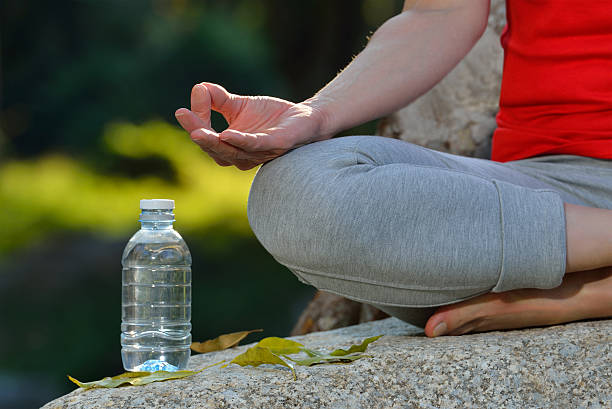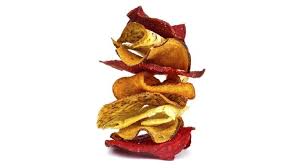Knee pain at night is a common and bothersome symptom that can make it difficult to fall asleep and stay asleep. It can be caused by a variety of factors, including arthritis, injury, bursitis, gout, pseudogout, overuse, infection, tumor, referred pain, and pregnancy.

Arthritis is the most common cause of knee pain at night, especially in older adults. It is a condition characterized by inflammation of the joints. There are many different types of arthritis, including osteoarthritis, rheumatoid arthritis, and psoriatic arthritis.
Check out our Knee Pads for Comfort and Relief
Injury to the knee can also cause pain at night. This can include injuries such as a torn meniscus, ACL tear, or patellar tendinitis. Knee injuries can occur during sports, exercise, or everyday activities.
Bursitis is inflammation of the bursae, which are small fluid-filled sacs that cushion the bones, tendons, and muscles around the knee joint. Bursitis can be caused by overuse, injury, or infection.
Gout is a type of arthritis that is caused by a buildup of uric acid crystals in the joints. Gout attacks can cause sudden and severe pain in the knee, especially at night. Gout attacks are often triggered by certain foods and drinks, such as red meat, seafood, and alcohol.
Pseudogout is a type of arthritis that is caused by a buildup of calcium pyrophosphate dihydrate crystals in the joints. Pseudogout attacks can cause pain, swelling, and redness in the knee, especially at night. Pseudogout attacks are often triggered by trauma or surgery.
Overuse of the knee can also cause pain at night. This is common in runners and other athletes. Overuse can lead to inflammation and damage to the tendons, muscles, and other tissues around the knee joint.
Infection of the knee joint, also known as septic arthritis, can also cause pain at night. Knee infections can occur from a break in the skin, such as from a cut or scrape, or from the spread of infection from another part of the body.
Tumor in the knee joint can also cause pain at night. Tumors can be benign (non-cancerous) or malignant (cancerous).
Referred pain is pain that is felt in one part of the body but is caused by a problem in another part of the body. For example, pain from a hip problem can sometimes be referred to the knee.
Pregnancy is another common cause of knee pain at night. The extra weight and changes in hormones during pregnancy can put extra stress on the knee joints.
Causes of Knee Pain at Night:
Here is an expanded explanation of the causes of knee pain at night:
- Arthritis: Arthritis is inflammation of the joints. It is the most common cause of knee pain at night, especially in older adults. There are many different types of arthritis, including osteoarthritis, rheumatoid arthritis, and psoriatic arthritis.
- Injury: A knee injury, such as a torn meniscus or ACL tear, can also cause pain at night. Knee injuries can occur during sports, exercise, or everyday activities.
- Bursitis: Bursitis is inflammation of the bursae, which are small fluid-filled sacs that cushion the bones, tendons, and muscles around the knee joint. Bursitis can be caused by overuse, injury, or infection.
- Gout: Gout is a type of arthritis that is caused by a buildup of uric acid crystals in the joints. Gout can cause sudden and severe pain in the knee, especially at night. Gout attacks are often triggered by certain foods and drinks, such as red meat, seafood, and alcohol.
- Pseudogout: Pseudogout is a type of arthritis that is caused by a buildup of calcium pyrophosphate dihydrate crystals in the joints. Pseudogout can cause pain, swelling, and redness in the knee, especially at night. Pseudogout attacks are often triggered by trauma or surgery.
- Overuse: Overuse of the knee can also cause pain at night. This is common in runners and other athletes. Overuse can lead to inflammation and damage to the tendons, muscles, and other tissues around the knee joint.
- Infection: A knee infection, such as septic arthritis, can also cause pain at night. Knee infections can occur from a break in the skin, such as from a cut or scrape, or from the spread of infection from another part of the body.
- Tumor: A tumor in the knee joint can also cause pain at night. Tumors can be benign (non-cancerous) or malignant (cancerous).
- Referred pain: Referred pain is pain that is felt in one part of the body but is caused by a problem in another part of the body. For example, pain from a hip problem can sometimes be referred to the knee.
- Pregnancy: Knee pain at night is common in pregnant women due to the extra weight and changes in hormones. The extra weight puts extra stress on the knee joints, and the hormones can cause the ligaments to loosen.
How to Prevent Knee Pain at Night:
Here is an expanded explanation of how to prevent knee pain at night:
- Maintain a healthy weight. Excess weight puts extra stress on the knee joints, which can lead to pain and inflammation.
- Exercise regularly. Exercise helps to strengthen the muscles around the knee and improve range of motion. Strong muscles help to support the knee joint and reduce the risk of injury.
- Avoid overuse. Avoid activities that overuse the knee, such as running and jumping. If you do participate in activities that overuse the knee, be sure to warm up properly and cool down afterwards.
- Wear supportive shoes. Shoes that fit well and provide good support can help to reduce stress on the knee joints.
- Use proper lifting techniques. When lifting heavy objects, bend at the knees and keep your back straight. Avoid lifting with your back.
- Stretch regularly. Stretching helps to improve flexibility and range of motion in the knee joint.
- Listen to your body. If you experience pain in your knee, stop the activity and rest.
Treatment:
Here is an expanded explanation of the treatment for knee pain at night:
- Rest: Resting the knee can help to reduce inflammation and pain. Avoid activities that put stress on the knee, such as running and jumping.
- Ice: Applying ice to the knee for 20 minutes at a time, several times a day, can help to reduce inflammation and pain.
- Compression: Wearing a compression sleeve or bandage can help to reduce swelling.
- Elevation: Elevating the leg above the level of the heart can help to reduce swelling.
- Over-the-counter pain relievers: Over-the-counter pain relievers, such as ibuprofen or naproxen, can help to reduce pain and inflammation.
- Physical therapy: Physical therapy can help to strengthen the muscles around the knee and improve range of motion. Physical therapy can also help to teach you exercises to reduce pain and improve function.
- Injections: In some cases, injections of corticosteroids or other medications may be recommended to reduce inflammation and pain.
- Surgery: In severe cases, surgery may be necessary to repair damage to the knee joint or to remove a tumor.
In addition to medical treatment, there are a number of things you can do at home to help manage knee pain at night. These include:
- Maintain a healthy weight. Excess weight puts extra stress on the knee joints, which can worsen pain.
- Exercise regularly. Exercise helps to strengthen the muscles around the knee and improve range of motion. Strong muscles help to support the knee joint and reduce the risk of injury.
- Avoid overuse. Avoid activities that overuse the knee, such as running and jumping. If you do participate in activities that overuse the knee, be sure to warm up properly and cool down afterwards.
- Wear supportive shoes. Shoes that fit well and provide good support can help to reduce stress on the knee joints.
- Use proper lifting techniques. When lifting heavy objects, bend at the knees and keep your back straight. Avoid lifting with your back.
- Stretch regularly. Stretching helps to improve flexibility and range of motion in the knee joint.
- Listen to your body. If you experience pain in your knee, stop the activity and rest.
Knee pain at night can be a debilitating condition, but it is important to remember that you are not alone. Many people experience this type of pain, and there are a variety of treatments available to help you manage it.
If you are experiencing knee pain at night, it is important to see a doctor to determine the underlying cause and get the appropriate treatment. There are a number of things you can do at home to help manage the pain, such as maintaining a healthy weight, exercising regularly, avoiding overuse, wearing supportive shoes, using proper lifting techniques, stretching regularly, and listening to your body.
If you are unable to manage your knee pain at night with home remedies and over-the-counter pain relievers, see your doctor. They may recommend prescription medication, physical therapy, or other treatments.
With proper treatment and management, most people with knee pain at night can find relief and improve their quality of life.





